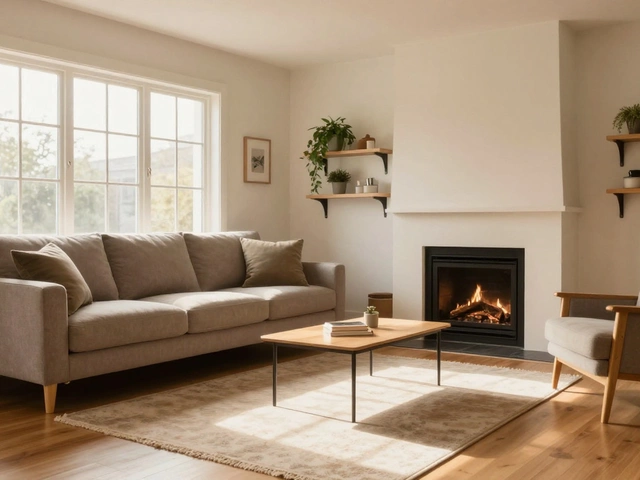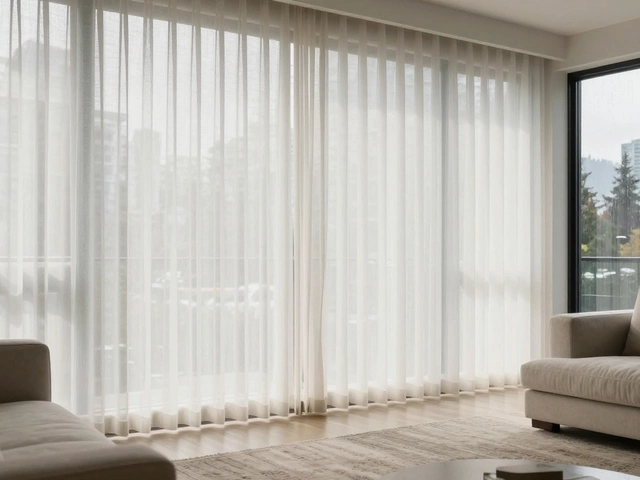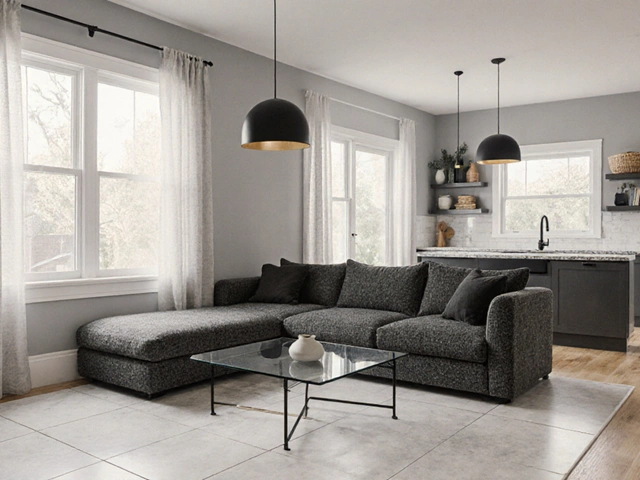Stuck between commercial and residential real estate? You’re not the only one. Most beginners picture big paydays and freedom, but the reality is both sides have a mix of surprises—and not always good ones.
Think about what drives you. If quick wins and friendly sales call your name, residential’s got a lower barrier, faster pace, and you can start with just a handful of contacts. But if you’re drawn to bigger deals, longer timelines, and don’t mind playing the waiting game for a fat commission, commercial can be your ticket. Just be ready to hustle hard, brush up on numbers, and, most days, wear more than just one hat.
But this isn’t just about money. Your daily grind, skillset, and stress tolerance matter a lot. That’s why this guide doesn’t sugarcoat. Instead, it’s straight talk to help you figure out where you’ll thrive, not just survive.
- What’s the Real Difference?
- Money Talks: Profits, Risks, and Flow
- Lifestyle and Workload: What Can You Expect?
- Skills and How to Get Your Foot in the Door
- Pro Tips Before You Decide
What’s the Real Difference?
When people compare commercial and residential real estate, they usually think it’s just about selling houses versus office buildings. But there’s a lot more going on under the hood. The basics are simple: residential properties are homes—think single-family houses, condos, and apartments. Commercial real estate covers spaces people use for business, like office towers, warehouses, retail shops, and even big apartment complexes (usually more than four units).
Working in residential means you’ll deal with regular folks shopping for a place to live. Your clients could be first-time buyers, sellers, or renters. Commercial real estate deals with business owners, investors, or corporations. These clients aren’t picking out drapes—they’re juggling spreadsheets, lease terms, foot-traffic counts, and much bigger price tags.
One big point most folks don’t realize: the process is different from start to finish. Residential deals are more emotional. Home buyers want to picture their lives in a space. That means more hand-holding and personal conversations. Commercial real estate? It’s numbers all day—return on investment, cash flow, zoning, and long legal contracts. A coffee shop owner cares about location and traffic stats, not the color of the kitchen countertop.
Here’s another core difference:
- Residential agents have a faster sales cycle. Houses can list and close in less than a month (in a hot market).
- Commercial deals take months, sometimes years. Patience isn’t just helpful—it’s required.
The licensing is another twist. In most states, you can start both careers with the same basic real estate license, but commercial shops often want extra training or mentorship before you jump in head-first.
Bottom line: if you want short, people-focused deals with quick payoffs, residential might fit. If you’ve got a head for business and patience for long negotiations, commercial real estate could be your game. Each path needs different skills and mindsets—and picking the wrong one costs time you won’t get back.
Money Talks: Profits, Risks, and Flow
If you’re chasing profit, the differences between commercial and residential real estate hit you fast. In commercial real estate, the paychecks can be huge, but you wait longer, and the deals are tougher to land. Residential usually pays smaller, more frequent commissions, and you don’t have to wait months for a payout.
Residential commissions are pretty simple: usually 2.5% to 3% of the sale price. Sell a $400,000 home, you’re looking at around 10 to 12 grand, before your split with your broker and taxes. Deals move fast, and there’s always a steady flow of buyers and sellers out there.
Now jump to commercial. Here you might see a commission of 5% for a small retail building, but as deal sizes go up, the percentage drops—sometimes down to 1% or less on multimillion-dollar properties. But here’s the kicker: even a 1% commission on a $5 million office building nets you $50,000 on one transaction. That’s why people chase commercial, even if it means closing just two deals a year.
But risk and difficulty go up too. Commercial deals involve more research, lawyers, and negotiation. Finding a buyer—and even financing—can take six months or longer. You might work on a big deal all year and see it fall apart just before closing. Here’s what the National Association of Realtors said about this:
"In commercial real estate, transactions are less frequent and can take an average of three to twelve months to close, which requires agents to have patience, a big network, and a deep understanding of the market."
Cash flow’s usually steadier in residential. You can count on deals closing every month if you hustle. But commercial pays off big… if you survive the dry spells in between.
- Tip for newbies: If you can’t handle cashflow swings, residential is safer.
- Commercial lets you scale fast, but you need savings or a backup plan for slow months.
- Residential gives you more practice at client management and quick sales skills.
Smart agents pick based on what actually fits their risk appetite. Don’t just chase dollar signs—look at how you’ll pay bills when deals lag.

Lifestyle and Workload: What Can You Expect?
Here’s where most people get blindsided, because the day-to-day in commercial real estate can look totally different from what you see in residential. There’s no uniform schedule in either, but the type of work—and what eats up your time—changes everything.
If you’re in residential, you’re busy when folks want to see homes: evenings, weekends, and even some holidays. You spend a lot of time driving around, showing properties, and answering calls at random hours. You should expect your phone to blow up every Sunday when families do house tours, and you’ll rush to prep listings in a hurry if someone wants to sell fast.
Commercial real estate usually means a more 9-to-5 grind, at least on paper. Meetings with business owners, investors, or property managers fill your weekday calendar. There’s more time spent studying market numbers, writing proposals, and hammering out lease details. But it’s not all desk work—touring warehouses, retail spaces, or office complexes is part of the gig, too. Fewer "emergency calls," but bigger headaches when deals stall for months.
- Residential: More flexibility, but also more chaos. The work can feel non-stop during busy seasons (spring and fall). If you like instant feedback and a people-heavy job, you’ll thrive here.
- Commercial: The pace is slower but more technical. You’re dealing with longer closing times (6–12 months isn’t weird), and you need to follow up often to keep deals alive. There’s less jumping from task to task, but you’ll need to juggle lots of detailed paperwork and negotiations.
Let’s be real: stress is part of both. But where it shows up and how it feels is different:
| Type | Typical Hours/Week | Peak Work Times | Deal Timeframe (Avg.) |
|---|---|---|---|
| Residential | 40–60 | Weekends/Evenings | 30–45 days |
| Commercial | 35–50 | Weekdays (Daytime) | 6–12 months |
A lot of people jump into residential thinking it’ll be easy money, but the hustle can burn you out if you aren't disciplined. My own buddy tried commercial first and found it less frantic, but the slow pace made him anxious. Meanwhile, I’ve seen folks love the residential rush—and others run straight back to a 9-to-5 after three months of missed family dinners.
Bottom line? Choosing between commercial and residential is also picking your daily vibe. Ask yourself which lifestyle fits best, not just which one pays more or sounds impressive at parties.
Skills and How to Get Your Foot in the Door
So, which set of skills pays off fastest in this game? Let’s break it down: Residential is all about connecting with regular folks, reading what buyers want, and solving little problems before they snowball. Commercial is a different beast. Here, you’ll need to think bigger, crunch numbers, and talk business—sometimes with folks in suits who care more about ROI than kitchen colors.
For both, you’ve got to be a people person. But on the commercial side, add strong negotiation chops, understanding cash flow (think: spreadsheets don’t scare you), and keeping up with market trends, zoning rules, and lease structures.
- Residential Skills: Communication, empathy, quick problem-solving, time management, relationship building.
- Commercial Skills: Financial analysis, networking with investors/companies, market research, patience for longer deals, understanding of building codes and legal stuff.
Getting started doesn’t always mean shelling out for a fancy degree. About 60% of residential agents start with just a basic real estate license. In commercial, a license is just step one—you often need extra classes or to intern with a seasoned pro before landing your first deal.
| Skill | Residential Importance | Commercial Importance |
|---|---|---|
| Client Communication | High | Moderate |
| Financial Analysis | Low | Very High |
| Networking | Moderate | Very High |
| Negotiation | High | High |
| Legal/Compliance Knowledge | Basic | High |
If you’re just getting started, here’s what I’d do:
- Get a real estate license (state requirements vary, but most take a few months part-time).
- Shadow or work under a local agent—residential for a faster entry, commercial for more behind-the-scenes learning.
- Take free or cheap online classes about basic leasing or commercial finance if you want to go commercial.
- Build your network now—social media, open houses, or local business meetups are smart bets.
- If numbers make you sweat, get comfortable with simple spreadsheets for commercial; online courses like Coursera or Udemy are perfect for this.
The truth? It’s less about fancy degrees and more about grinding, learning from each stumble, and putting yourself out there. If you bring hustle and keep building your toolbox, you’ll carve out your lane, no matter which side you pick.

Pro Tips Before You Decide
Don’t rush your decision. Plenty of folks start with residential because it’s easier to break into and there’s always movement—people buy and sell homes no matter the market. But commercial real estate turns less often, and deals can drag for months, even years. Still, closing just one commercial deal can sometimes equal ten residential commissions.
- Shadow local agents: Spend a week with both residential and commercial pros. You’ll pick up on things textbooks never mention—like how different the client meetings and daily tasks feel.
- Check your financial cushion: In commercial, you might wait 12-18 months before your first commission rolls in. If you can’t afford that, residential gives you quicker, smaller paydays to stay afloat.
- Look up current demand: Some areas are hotbeds for commercial growth, while others run circles with houses. The National Association of Realtors’ 2024 data says secondary cities saw a 17% jump in commercial construction starts last year.
- Understand licensing: In most states, a general real estate license covers both, but lenders and brokerages often demand you pick one path to start. Double-check local rules so you don’t waste time or money on extra exams.
- Play matchmaker—skills & lifestyle: If you’re energized by networking, fast responses, and juggling multiple clients at once, residential can fit like a glove. If you like deep dives, complex projects, and negotiating with seasoned investors, go commercial.
Here’s a quick snapshot comparing average timelines and commission ranges. Notice the patience gap between the two tracks:
| Deal Type | Average Time to Close | Typical Commission |
|---|---|---|
| Residential | 30–60 days | 2%–3% of sale price |
| Commercial | 6–24 months | 1%–2% of sale price (but much higher property values) |
The bottom line? Pick the track that matches your risk comfort, money needs, and personality—not just what you think sounds impressive. Tons of high earners in commercial real estate started out selling simple homes. The important part is moving forward, getting your name out there, and seeing what fits you best.








